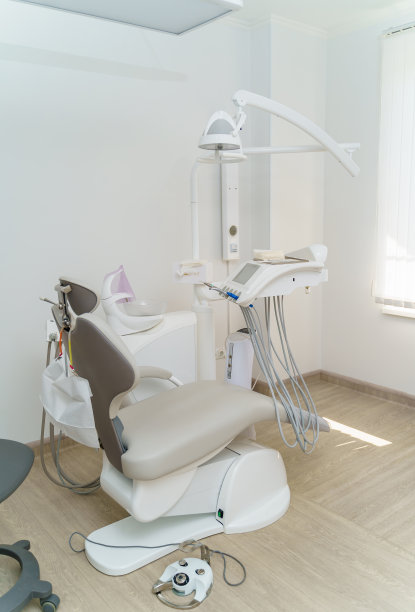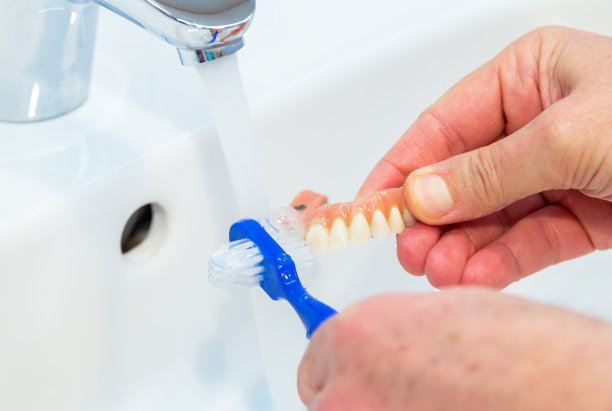Summary: Revolutionizing Oral Care: The Future of Dental Implant Treatment explores the innovative advancements in dental implant procedures that are transforming the field of oral care. From improved materials to cutting-edge technologies, this article delves into the potential impact these developments may have on the future of dentistry, offering a glimpse into a revolutionized approach to oral health.
1. Enhanced Materials and Durability

Recent breakthroughs in dental implant materials have significantly enhanced the durability and longevity of implants. Advanced ceramics and titanium alloys are now commonly used, providing greater strength and resistance to wear and tear. These materials not only improve the lifespan of dental implants but also offer a more natural look and feel, seamlessly integrating with the patients existing teeth.
The use of bioactive materials in dental implants has also shown promising results in promoting osseointegration – the process of bone bonding to the implant surface. This not only ensures a more secure fit but also fosters better long-term stability and functionality for patients.
Furthermore, the development of biocompatible materials has reduced the risk of allergic reactions and inflammation, making dental implants a safer and more viable option for a wider range of patients.
2. Precision and Technology Integration
Advancements in digital imaging technologies and computer-aided design/computer-aided manufacturing (CAD/CAM) systems have revolutionized the planning and placement of dental implants. 3D imaging techniques now allow for precise treatment planning, enabling dentists to create custom implant solutions tailored to each patients unique oral anatomy.
Additionally, the integration of guided surgery techniques has enhanced the accuracy and predictability of implant placement. With the use of surgical guides, dentists can navigate complex anatomical structures and achieve optimal implant positioning with minimal invasiveness, reducing surgical time and improving overall patient outcomes.
The incorporation of virtual reality and augmented reality tools further enhances patient education and engagement, providing a comprehensive visualization of the treatment process and empowering individuals to make informed decisions about their oral health.
3. Regenerative Medicine and Tissue Engineering
The emerging field of regenerative medicine and tissue engineering holds great promise for the future of dental implant treatment. Innovative techniques, such as stem cell therapy and growth factor applications, aim to stimulate tissue regeneration and enhance the healing process following implant placement.
By harnessing the bodys natural healing mechanisms, regenerative approaches not only improve the integration of dental implants but also facilitate bone and tissue regeneration, enabling the restoration of lost or damaged structures in the oral cavity. These regenerative therapies have the potential to revolutionize the treatment of complex dental conditions, offering new solutions for patients with compromised oral health.
Furthermore, the development of bioactive coatings and surface modifications enhances the biocompatibility of dental implants, promoting tissue adhesion and reducing the risk of complications such as peri-implantitis. These bioactive technologies pave the way for advanced implant designs that prioritize tissue regeneration and long-term functional success.
4. Personalized Care and Patient Experience
The future of dental implant treatment is moving towards a more personalized and patient-centered approach, focusing on individualized care plans and enhanced patient experiences. Tailored treatment protocols that consider each patients unique oral health needs and preferences are becoming standard practice, fostering better communication and collaboration between clinicians and patients.
Incorporating digital workflows and virtual simulation tools allows patients to preview the outcomes of their treatments and participate actively in the decision-making process. This interactive approach not only improves treatment outcomes but also increases patient satisfaction and compliance with post-operative care regimens.
Moreover, advancements in pain management techniques and sedation options enhance the comfort and convenience of dental implant procedures, reducing anxiety and discomfort for patients. By prioritizing the holistic well-being of individuals, the future of dental implant treatment aims to provide not only functional and aesthetic benefits but also a positive and empowering dental experience.
Summary: Revolutionizing Oral Care: The Future of Dental Implant Treatment showcases the transformative impact of technological advancements and innovative approaches in the field of dental implantology. From enhanced materials and precision technologies to regenerative therapies and personalized patient care, these developments are reshaping the landscape of oral health care, offering new possibilities for patients and practitioners alike.
This article is compiled by Vickong Dental and the content is for reference only.
Vickong Dental
Vickong Dental is a large medical group established in Hong Kong in 2008 by professors from well-known medical universities in Guangdong and Hong Kong, as well as medical doctors from key national '985' universities (including Master's supervisors and senior professors). The chain of branches brings together expert dentists with PhDs and Master's degrees from Hong Kong and Mainland China, committed to providing high-quality dental treatment.
"Vickong Dental Practices the University Motto of 'Healing and Serving Society,' with a Stable Operation for Sixteen Years. It Has Been honored with Hong Kong Enterprise Leaders's Choice,' and is a Global Trusted Implant Center for the Nobel Implant System. Recommended by Hong Kong Metro Broadcast and Guangdong Television, it Serves Customers from Over Thirty Countries and Regions, Gaining the Trust and Favor of Citizens from the Guangdong-Hong Kong-Macau Greater Bay Area and Surrounding Cities.

Thousands of customers' unanimous praise
The most recognized and highly recommended dental service by customers in the Guangdong-Hong Kong-Macau Greater Bay Area
We Ensure You Receive Detailed Care and Attention Here
Hong Kong standards, Shenzhen prices, Your Trusted English-speaking dentists

Vickong Dental Medical-Grade Instrument Disinfection Process
Vickong Dental Medical-Grade Instrument Disinfection Process

Vickong Dental Chain: A Warm and Comfortable Environment for Treatment






Appointment Hours

Q&A
Why choose Vickong Dental?
Vickong Dental practices the university motto 「Medicine to Benefit Society」, with each branch bringing together highly qualified dentists with doctoral and master’s degrees from Hong Kong and the Mainland, and has maintained seventeen years of steady operation。Recipient of 「2024 Hong Kong Enterprise Leaders Brand」, 「2025 Hong Kong Enterprise Leaders Brand」, a Nobel Biocare Global Trusted Implant Center, and a brand recommended by Metro Radio Hong Kong and Guangdong TV。
To date, we have served customers from more than thirty countries and regions,earning exceptionally high word-of-mouth recognition and trusted recommendations from residents across the Guangdong-Hong Kong-Macao Greater Bay Area and surrounding cities
We have eight major branches in Zhuhai、Shenzhen,and a consultation and service assurance center in Hong Kong,so you can book a free consultation at any time for any questions,which is very reassuring.
If I do not accept the quotation after the CT scan, will I be charged??
No! As long as the actual treatment has not started, you will not be charged any fees.
Will there be any additional charges during the treatment process?
No, there won’t be any additional charges. Before treatment begins, we will clearly explain the treatment plan and its corresponding fees. Only after the patient agrees and signs the consent form will we proceed with the dental service.
Can I pay in Hong Kong dollars?
Yes. Vickong Dental accepts payment in Hong Kong dollars. The amount will be converted based on the exchange rate of the day, and the applicable rate will be clearly communicated to you in advance.
Can I reschedule my appointment at any time?
Yes. Please contact us via **WeChat** or **WhatsApp** as early as possible, providing your original appointment time and details, along with your preferred new date and time slot for rescheduling.













